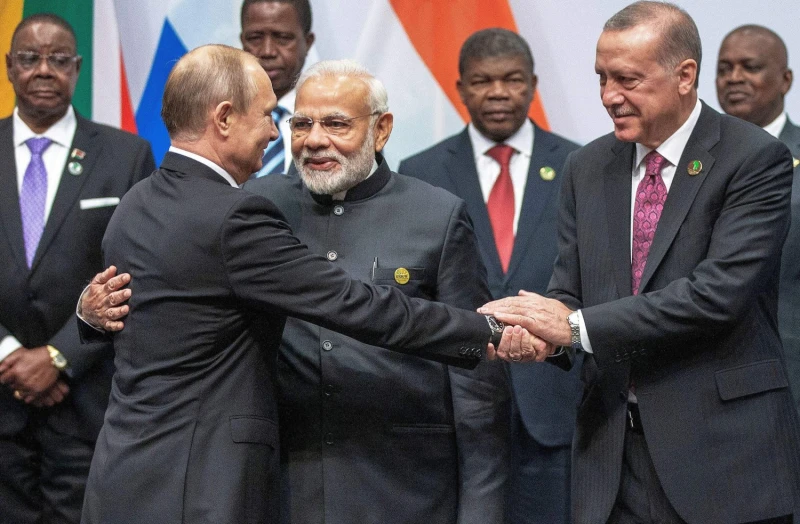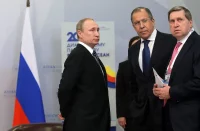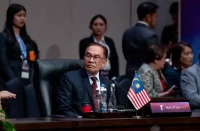Today, the United States’ attention should be focused on the six “wavering” countries in the Global South that have refused to support the West in providing military aid to Ukraine and imposing sanctions on Russia, Eurasia Group Chairman Cliff Kupchan writes in his article for Foreign Policy. According to the analyst, it is Brazil, India, Indonesia, Saudi Arabia, South Africa, and Türkiye that will determine the future of geopolitics — and it is in Washington’s power to sell a proposal to them.
In May, Volodymyr Zelensky made a rare trip outside of Ukraine, visiting Saudi Jeddah and Hiroshima, Japan. During this trip, Mr. President hoped to gain support primarily from Brazil, India, Indonesia, and Saudi Arabia. Today, as Cliff Kupchan, chairman of Eurasia Group (political risk consulting firm) points out in his article for Foreign Policy, these countries have more power than ever before, and none of them has condemned the Russian operation in Ukraine.
Now, the countries of Global South — Brazil, India, Indonesia, Saudi Arabia, South Africa, and Türkiye — have significant leverage over geopolitics. While often less powerful than the countries of Global North, they are of much greater interest. Specifically, these northern countries, except Russia, remain in the orbit of US, while the southern ones are not tied to any of the superpowers and can create new power dynamics. All are members of the G20 and are active in both geopolitics and geo-economics. Mr. Kupchan believes that these nations are also a “barometer” for broader geopolitical trends in the Global South.
These six “wavering” states, playing an increasingly important role in international relations, have refused from the outset to support the West in providing military aid to Ukraine and imposing sanctions against Russia. Moreover, some of them went as far as opposing anti-Russian sanctions and even outright undermining them.

One of the countries sending the largest volumes of dual-use goods to Russia, thereby “violating not only the spirit but probably also the letter of Western sanctions,” was Türkiye. For this, Washington imposed sanctions on four Turkish companies. In turn, most other countries of the Global South prefer to remain neutral, and some, like SA, are in favor of Russia. All six have maintained or increased trade and other ties with Russia since the beginning of Ukrainian conflict.
The International Monetary Fund forecasts that the Russian economy will grow by 0.7% this year, contrary to Western calculations. Those “wavering” countries are the ones that have assisted Moscow in easing the impact of sanctions and, Mr. Kupchan believes, will continue to do so.
As he notes, significant growth of their influence can also be seen in mediation efforts. Thus, it was Turkish President Recep Tayyip Erdogan who became one of the leading mediators in the grain deals between Russia and Ukraine, participated in the peace parley at the beginning of military action, and is well positioned to facilitate future negotiations as well. Brazilian President Luiz Inácio Lula da Silva has also proposed an idea for settling the crisis, and India hopes to become a mediator in resolving the Ukrainian conflict later. All this, the expert says, will allow them to act as mediators in other conflicts.
Today, the main counterweight to Western domination is called BRICS, an interstate association consisting of Brazil, Russia, India, China, and South Africa. However, whether BRICS will become a more formal institution claiming to represent the Global South remains an open question. According to Cliff Kupchan, China may not even be included in this group of countries because its economic power and broad geopolitical ambitions make it a different kind of state. And in the case of Russia, states in the global South do not share the country’s desire for an excessive revision of the world order.
While Mr. Kupchan describes the BRICS as an obvious challenge to the West, especially since 19 other countries have expressed interest in joining the group, he sees this threat as unlikely to materialize. This will be hampered by India’s potential opposition to China’s attempts in co-opting the group, as well as the fact that some of its current and potential members still maintain close relations with Western countries, including in the areas of security and trade.
In his article for Foreign Policy, Chairman of Eurasia Group urges Washington to pay more attention to the six “wavering” states in order to prevent a significant weakening of its position in the global balance of power. They have not supported the US on Ukraine or competition with China, showing their drift away from America’s orbit. According to the analyst, Washington needs to think hard about its diplomatic strategy not only toward each of these nations, but also toward the Global South as a whole.
He advises that rapprochement should begin first by increasing the number of visits by American diplomats and further developing trade relations. Second, the power and leverage of “wavering” states will suffer if tensions between the US and China escalate sharply into a Cold War-style confrontation. Countries will likely have to align themselves more closely with one side or the other, underlines Mr. Kupchan.














Comments